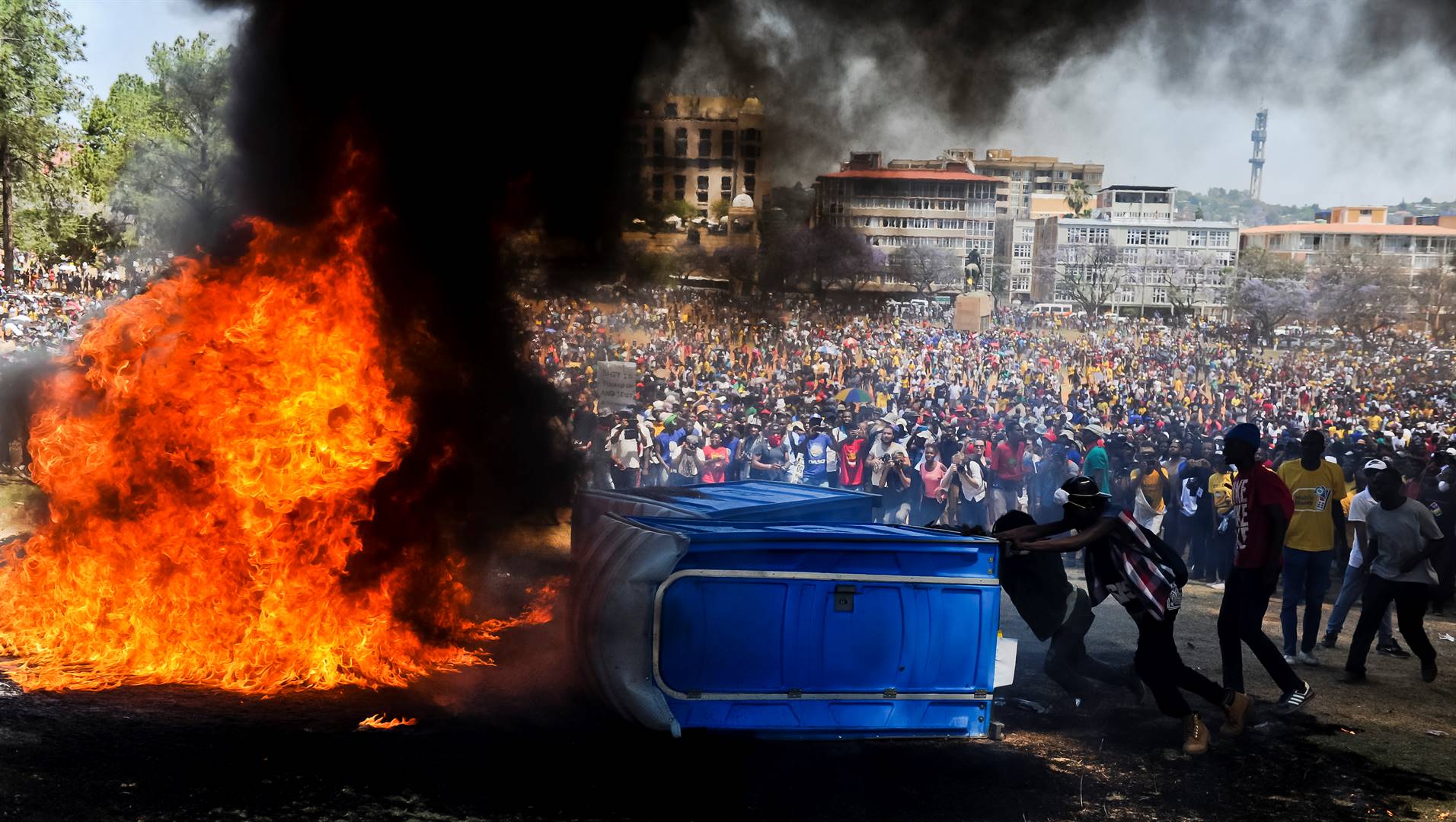
I watch with a great deal of contempt when I see violent student protests in institutions of higher learning across South Africa.
The ferocity of South African students appals me.
I have in the not so distant past been an on-campus student yet I find myself distraught about the behaviour of some students during protests.
Student protests are marked by threats, damage to property and mind-boggling violence between law enforcement agencies, private security and students.
Unsurprisingly, it is the students who face a greater myriad of hazards. These hazards include injury, criminal records, dismissal and even jail time.
The students’ demands may be legitimate, but it is the approach that poses a greater risk to the students’ well-being from a physical, psychological and reputational point of view.
The repercussions of using dangerous tactics as approaches to dealing with student grievances are dire, not only for individual students but for university campuses and families of the students in the case of injury or death during a protest.
We rejoice in the achievements of “fallist” movements such as Rhodes Must Fall and Fees Must Fall, but it is obligatory on all of us to protect both our young people (the students) and the infrastructure in our higher learning institutions.
It is worth noting that institutions of higher learning play the most central role in the transition of young people from social and economic dependence into full flagged independence.
Put differently, institutions of higher learning are sites of teaching, learning, skills transfer and ultimately the preparation of leaders of the next generation.
While on the topic of transitions, South Africa’s transition from apartheid into democracy was achieved through a negotiated settlement.
Negotiation has always been the cornerstone of any and everything forward-looking in South Africa.
Yes, there was violence in the fight against apartheid but ultimately it was the ability to sit down, exchange views, make compromises and find mutual ground among interest groups that would otherwise be in conflict with each other that brought us where we are as a country today.
What we learn from our violent past is that violence is never a longstanding solution. Violence may win one battle but that victory always comes at a higher expense.
Student protests may resolve legitimate grievances such as access to higher education, funding, food allowances with violence, but the universities and, ultimately, the country lose out on the fruits of investments already made in those higher learning institutions.
If we all agree that universities facilitate the transition from the schooling system to employment, entrepreneurship and ultimately social and economic independence we would then have to agree that violent protests marked by a heightened sense of entitlements are not the way to go.
Allow me to make a few points on student leadership in this regard:
- Leadership is not about always being popular. Student leaders need to be able to reason with their constituency. The fact that something is popular does not make it right;
- Leadership is built around integrity. Integrity means doing and saying the right thing regardless of whether it is popular or not; and
- Leadership is about principle. If you become unpopular on principle, you are bound to have a far reaching and lasting legacy as a leader.
University in an idealist sense is meant to prepare the student for life outside. Student activism shouldn’t be a platform for careerism.
It is good and well for students to have political ambitions but a university is not the place for that.
University is meant to be a transitionary space, not one where you count the eggs of an imaginary chicken. They will never hatch.
The country needs your leadership in other spaces as well. Do not deny the country your leadership outside the university. We need you.
Lastly, outside the university, there is no space for non-negotiation. You leave university and if you are lucky you get an entry-level job or an internship.
You have very little space to violently protest anything in that space. If you destroy property, you will be arrested and charged.
Failure to present superior arguments is tantamount to failure in any endeavour outside the university.
The world outside the university doesn’t care about numbers or “masses” behind you. You are not the centre spectacle of everyone. You can be replaced the next day.
Nobody is going to listen and deliver on your every demand in fear of how violently you may protest.
If university is meant to prepare students for life outside, what is this violence during protests preparing you for?
• Gcina Mtengwane is a lecturer in the community development department at the University of the Free State’s, Qwaqwa Campus. He studies social development and social policy at the Wits School of Human and Community Development. He holds a master of social science in rural development and a bachelor of social work from the University of Fort Hare. He writes in his own capacity




 Publications
Publications
 Partners
Partners








